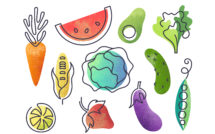

This is part of our Campus Spotlight on the University of North Carolina at Chapel Hill.
This course on “Anthropology and Public Health” emerged through discussions between two colleagues from different subfields within the discipline of anthropology. Michele Rivkin-Fish is a cultural medical anthropologist, and Mark Sorensen is a biocultural anthropologist. Both have done extensive fieldwork in Russia examining the effects of the dramatic political-economic and social transformations of the 1990s on health. Both also teach a large number of undergraduate students focusing on pre-health professional curricula, many of whom pursue their department’s minor in medical anthropology. Sorensen and Rivkin-Fish created this course to highlight the particular ways anthropology, with its own interdisciplinary approaches, examines the intersections between cultural and political-economic changes and health.
This course examines comparisons and contrasts between the disciplinary approaches of public health and anthropology. We begin by examining the theories and methods of the social determinants of health paradigm, an approach that investigates the relationships between inequality, poverty, and health. We will explore epidemiological, biocultural, and symbolic approaches to these phenomena, and inquire into possibilities for interdisciplinary analysis. In the process, the course will demonstrate how ethnographic forms of knowledge and anthropological theories may complement and extend the social determinants of health analysis. Public health and anthropological approaches to public policy and health development will also be examined. While case studies from throughout the developed and developing world will be used, the course will focus largely on the U.S. and Russia.
Required Books: The following texts are available for purchase at Student Stores:
Wilkinson, RG. 2005. The Impact of Inequality: How to Make Sick Societies Healthier. New York: The New Press.
Fassin, Didier. 2005. When Bodies Remember: Experiences and Politics of AIDS in South Africa. University of California Press.
Additional readings will be posted on the course site of Sakai.
Course Requirements
- Consistent attendance and thoughtful participation based on careful preparation of the readings at our weekly seminars. We expect students to come to class with written notes on the readings, indicating page numbers of important or vexing quotations to discuss. The amount of knowledge, insights, and understandings you will gain from our seminar will depend, at least in part, on the ways you prepare for each class. If you need to miss a seminar for any reason, it is important that you let me know in advance if at all possible. 15% of grade.
- Students will serve as discussion leader twice during the semester, introducing key issues in the readings and raising questions for our class discussion. The presenter will lead our class with a 10-15 minute summary of the readings, focusing on their theoretical approaches, arguments, and the student’s own evaluation of the articles’ strengths and weaknesses. Each presenter will provide a list of discussion questions on the readings as well. Presenters are required to post this list of 4-5 discussion questions by 10pm on the Wednesday before our seminar meeting so that class members have a chance to consider them before class. Each of the times you serve as discussion leader counts for 10% of your grade, for a total of 20%.
- 2 written essays critically summarizing and reflecting on the week’s readings, due in class the day the readings are discussed. Please provide a hard copy to each professor. Each counts for 12.5% of grade or a total of 25%.
4) An oral presentation discussing how class themes are helping you illuminate your research. These presentations will take place during the final three weeks of class 15% of your grade.
5) A final paper (approx. 10 pages) on a topic that relates course themes to your own research interests, due Tuesday, December 6, in class. A title, abstract of your paper, and preliminary bibliography must be submitted to us for approval no later than Tuesday, Nov.15. 25% of grade.
(Any bibliographic format is acceptable, as long as you are consistent in your use.)
Tips for Success and Criteria for Evaluation
This class is based on careful reading and appreciative critique /critical appreciation of the texts. There is a great emphasis placed on in-class discussion, thinking aloud, and engaging in respectful debates. Please be sure to bring the text to class each week. It will be helpful for you to identify sections of the text (in notes you take while reading) that seem particularly central to the author’s argument, or that you find interesting and/or problematic. As a group, we will read such selections together in developing our critical analysis. You oral contributions will be evaluated on the basis of effort, not on having perfectly articulated ideas and comments!
Written work will be evaluated on the basis of clarity of thought, close engagement with the texts, and creativity. Again, the notes you take while reading the texts and notes based on in class discussion will help you understand the material and allow your own critical understandings to coalesce. Understanding and applying theoretical concepts is a process that occurs gradually, with persistence, perseverance, and hard work.
Schedule
Introductory Session Aug. 23:
Week 1 Aug. 30: Theoretical Paradigms:
Wilkinson, Richard. The Impact of Inequality, pp. 1-168.
Week 2 Sept. 6
Wilkinson, Richard. The Impact of Inequality, pp.169-318.
Sweet, Elizabeth 2010. If your shoes are raggedy you get talked about: Symbolic and material dimensions of adolescent social status and health. Social Science & Medicine 70:2029-2035.
Sweet, Elizabeth 2011. Symbolic capital, consumption and health inequality. Am J Public Health. 2011 Feb;101(2):260-4.
Week 3 Sept. 13 Case Study: Post-Soviet Ruptures: The Collapse of State Socialism and the Male Mortality Crisis
Cornea Giovanni A. & Renato Pannicia. 2000. The Mortality Crisis in Transitional Economies. Oxford. Chapters 1, 2, 7.
Leon DA, Chenet L, Shkolnikov VM, Zakharov S, Shapiro J, Rakhmanova G, Vassin S, McKee M. 1997. Huge variation in Russian mortality rates 1984-94: artefact, alcohol, or what? Lancet. 350: 383-8.
Shkolnikov VM, Leon DA, Adamets S, Andreev E, Deev A. 1998. Educational level and adult mortality in Russia: an analysis of routine data 1979 to 1994. Social Science & Medicine. 47:357-69.
Week 4 Sept. 20 Post-Soviet Ruptures: De-Collectivization and Economic Collapse
Leonard WR, Snodgrass JJ, Sorensen MV. 2008. “Health Consequences of Social and Ecological Adversity Among Indigenous Siberian Populations: Biocultural and Evolutionary Interactions.” In Catherine Panter-Brick and Agustin Fuentes (eds.), Health, Risk, and Adversity. New York: Berghan Books, pp. 26-51.
Sorensen, MV, Snodgrass, JJ , Leonard, WR , McDade, TW, Tarskaya, LA, Ivanov, KI, Krivoshapkin VG,
Alekseev, VP. 2009. “Lifestyle Incongruity, Stress and Immune Function in Indigenous Siberians: The Health Impacts of Rapid Social and Economic Change.” American Journal of Physical Anthropology 138:62-9.
Sorensen, MV, Leonard, WR, Snodgrass, JJ, Tarskaya, LA, Spitsyn, VA, LA, Ivanov, KI, Krivoshapkin, VG. 2005. “Health consequences of post socialist transition: dietary and lifestyle determinants of plasma lipids in Yakutia.” American Journal of Human Biology 17: 576-592.
Sorensen, MV, Leonard, WR, Tarskaya, LA, Ivanov, KI, Snodgrass, JJ, Krivoshapkin, VG, Rifai, N. 2006. “High sensitivity c-reactive protein, adiposity and blood pressure in the Yakut of Siberia.” American Journal of Human Biology 18:766-775.
Week 5 Sept. 27 Post-Soviet Ruptures: Gender, Public Health, and the Need for Reconceptualizing Public and Private Space
Watson, Peggy 1995. Explaining Rising Mortality Among Men in Eastern Europe Social Science and Medicine 41(7):923-934.
Rivkin-Fish, Michele. 2006 From ‘Demographic Crisis’ to a ‘Dying Nation’: The Politics of Language and Reproduction in Russia in Gender and Nation in Russia, Helena Goscilo and Andrea Lanoux, eds. University of Northern Illinois Press, pp.151-173.
Zdravomyslova, Elena 2010 Working Mothers and Nannies: Commercialization of Childcare and Modifications in the Gender Contract (A Sociological Essay) Anthropology of East Europe Review 28(2):200-225.
Week 6 Oct. 4 Post-Soviet Ruptures and the Epistemological Limits of Western Models of Intervention
Meyer, Will, Costenbader EC, Zule WA, Otiashvili D, Kirtadze I. 2010. ‘We are ordinary men’: MSM identity categories in Tbilisi, Georgia. Culture, Health, and Sexuality 12(8):955-71.
Koch, Erin 2006.Beyond suspicion: Evidence, (un)certainty, and tuberculosis
in Georgian prisons American Ethnologist, 33(1): 50–62.
Rivkin-Fish, Michele [n.d.]Conceptualizing Feminist Strategies for Russian Reproductive Politics: Abortion Politics, Family Support, and Surrogate Motherhood After Socialism.
Week 7 Oct. 11 Post-Soviet Ruptures: Professional Authority, Political-Economic Constraints, and the Transformation of Selves
Raikhel, Eugene, 2010. Post-Soviet Placebos: Epistemology and Authority in Russian Treatments for Alcoholism Culture, Medicine and Psychiatry 34(1): 132-68.
Skultans, Vieda 2007. The Appropriation of Suffering: Psychiatric Practice in the Post-Soviet Clinic Theory, Culture, and Society 24; 27.
Week 8 Oct. 18 Health Disparities in the US.
Bach, Peter B. et al. 2002. “Survival of Blacks and Whites After a Cancer Diagnosis.” JAMA. 287:2106-2113.
Barker DJ, Osmond C, Thornburg KL, Kajantie E, Eriksson JG. 2008. “A Possible Link Between the Pubertal Growth of Girls and Ovarian Cancer in Their Daughters.” American Journal Of Human Biology 20:659–662.
Kuzawa CW, Sweet E. 2009. “Epigenetics and the embodiment of race: developmental origins of US racial disparities in cardiovascular health.” Am J Hum Biol. 2009 Jan-Feb;21:2-15.
Shavers, Vickie L. & Brown, Martin. 2002. “Racial and Ethnic Disparities in the Receipt of Cancer Treatment.” Journal of the National Cancer Institute, 94: 334-57.
Thayer ZM, Kuzawa CW. “Biological memories of past environments: Epigenetic pathways to health disparities.” Epigenetics. 2011 Jul 1;6(7):798-803.
Week 9 Oct. 25 Development and the Ethical challenges of Public Health Intervention
San Sebastian, M. & A.K. Hurtig. “Oil development and health in the Amazon basin of Ecuador: the popular epidemiology process.” Social Science & Medicine 60 (2005) 799–807.
Further readings TBA.
Week 10 Nov. 1 Public Health Volunteerism, Missionary work, and Critical Visions from Anthropology
Maki, J.; Qualls, M.; White, B.; Kleefield, S.; Crone, R., 2008. “Health impact assessment and short-term medical missions: a methods study to evaluate quality of care.” BMC Health Services Research 8 (121) http://www.biomedcentral.com/1472-6963/8/121.
Rivkin-Fish, Michele 2011. “Learning the Moral Economy of Commodified Health Care: Community Education, Failed Consumers, and the Making of Ethical Clinician-Citizens” Culture, Medicine, and Psychiatry, 35(2): 183-208.
Jobe, Kathleen 2011. “Disaster relief in post-earthquake Haiti: Unintended consequences of humanitarian volunteerism” Travel Medicine and Infectious Disease 9, 1 5
James, Erica Caple. 2010 “Ruptures, rights, and repair: The political economy of trauma in Haiti” Social Science & Medicine 70: 106–113.
Week 11 Nov. 8 Public Health and the Politics of Health Care Systems
Pollack, A.M. and D.C. Price, “Competing Bureaucracies: market risk selection versus public health planning” unpublished ms.
Tritter, Jonathan, Meri Koivusalo, Eeva Ollila and Paul Dorfman, 2010. Globalisation, Markets, and Healthcare Policy: Redrawing the Patient as Consumer, Routledge, Introduction and chapters 1-3 (pp. 1-53.)
Galarneau, Charlene 2011. “Still Missing: Undocumented Immigrants in Health Care Reform” Journal of Health Care for the Poor and Underserved 22(2): 422-428.
Week 12 Nov. 15 Anthropological Critiques of Public Health: History, Memory, and Politics
Fassin, When Bodies Remember pp. 115-172; 228-280.
Week 13 Nov. 22
Oral presentations
Week 14 Nov. 29
Oral Presentations
Week 15 Dec. 6 – Final session
Oral Presentations & Evaluation of Course
Michele Rivkin-Fish is an Associate Professor of Anthropology at the University of North Carolina-Chapel Hill. Her work has examined Russia’s health care reforms, debates and policies on reproduction and demography, sex education, and the daily struggles of women and men to secure well-being as privatization expands in official and unofficial ways. Her book, Women’s Health in Post-Soviet Russia: The Politics of Intervention (Indiana UP 2005) contributes to feminist and medical anthropological scholarship linking reproductive politics with transformations of the state and citizenship.
Mark Sorensen is an Associate Professor of Anthropology at the University of North Carolina-Chapel Hill. He is a biological anthropologist specializing in biocultural and evolutionary approaches to human variation. His research focuses on the linkages between social and cultural processes, human biology, and health, in particular the biological impacts of globalization, modernization, and cultural change, in human adaptability and in ecological models for hominid evolution. He has been investigating subsistence strategies, adaptation and health in Yakutia, to unveil the impacts of the post-socialist transition on the health and well-being of Siberian reindeer herders.
Photo: Illustration of large mass of people from wide angle in color | Shutterstock
Published on June 11, 2019.




